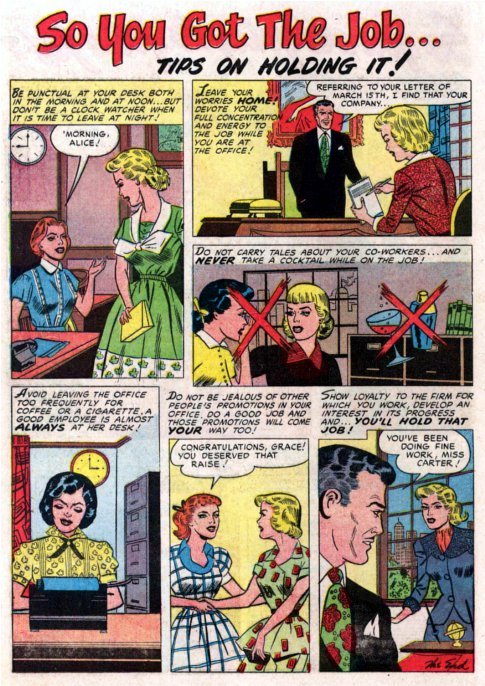Right, newbies. If you're in EPIK, you've completed the training, got the certificates, maybe found some way to carry your weird wooden sculpture thing or polystyrene mask all the way from your orientation site to your new home safely. Hagwoners, however, have probably been unceremoniously dumped on the pavement and given a scrap of paper with their address scrawled on it in unreadable Korean handwriting. You've carried your bags up infinite stairs and are probably living out of them because the thought of unpacking is overwhelming. You probably expected your new apartment to come with cups, bowls and spoons, at least... But all you got was a dead cactus and the lingering odour of next door's plumbing. If you're like me, I bet you have already had a good long cry as the shock that comes with moving your whole life to Asia hits you like a chopstick to the eye.
But now what? How do you get on your feet? Where do you go from here?
Hey guys, I made you a helpful guide. I kinda wish there'd been something like this for me when I got here six months ago. Specific to Daegu. Hopefully someone in your area will make one for you, but most of the info should be fine for the rest of Korea.
Daegu 101
Maps:
Pick up a free copy of the Daegu Compass (in many stores downtown).
It contains maps. You can also download it here:
http://daegucompass.com/
I have also made a couple of maps, linked here. They can be a little overwhelming though.
Maps
Important Phone Numbers:
| Criminal Act | 112 | First Aid Application | 1339 |
|---|
| Spy Report | 113 | Lost & Found | 182 |
|---|
| Fire, Rescue | 119 | Postal Info | 1300 |
|---|
| Drug Report | 127 | Citizenship Reference | 1382 |
|---|
| Illegal Import Report | 125 | Law Counseling | 132 |
|---|
| Current Time | 116 | Volunteers' Center | 1365 |
|---|
| Telephone Utility | 100 | Pension Counseling | 1355 |
|---|
| Local General Info | 120 | Domestic Telegram Service | 115 |
|---|
| Pollution | 128 | International Telegram Service | 00795 |
|---|
| Water Supply | 121 | Drug Abuse Counseling | 080-767-5115 |
|---|
| Electronic Power | 123 | Weather Forecast | 131 |
|---|
| Transmitter's Number Service | 155 | Collect Call Service | 1541 |
|---|
| Telephone Disorder | 110 | General Financial Info | 1369 |
|---|
Getting a bank account and phone: (I wrote a lengthy post about this
here)
TL:DR - Bank: You need an ARC, and two other forms of ID (Passport AND National ID will suffice). So far KEB offers the best options for English services and sending money home. Go in person to a branch and hopefully you'll get one of their lovely, patient tellers who speak just enough English to tell you where to sign your name. Ask them for internet banking while you're there. It will save you a trip.
Phone: I used Eliza from AUI Korea to get my phone (also detailed info in that post linked above). You need an ARC and your bank info (Bank book should cover it) for this. Set up online banking by following this
guide.
Medical Help: I was sick as a dog when I arrived here and struggled to find a doctor. Here is some Hangeul for you to match with neighborhood signs, as well as the names of some of the hospitals I've tried.
Ear, Nose and Throat: 이비인후과 (say eee bee eeen hookaaah)
Hospitals (byeongweon - 병원)
파티마 (Fatima - pronounced Patima) Hospital. This has an international section with English speakers who will go around with you.
(곽) Kwak's Hospital. Few English speakers but good for quick attention to trauma. I had a walk-in brain scan within 15 minutes.
피부과: dermatologist
Ordering food in a restaurant:
(food) (number) juseyo.
Foods: bibimbap (rice and mixed vegetables) - 비빔밥
mul naengmyeon (cold noodles in icy broth) - 물냉면
bibim naengmyeon (cold noodles without broth, in a red sauce) - 비빔 냉면
kimbap (rice and veggies and sometimes meat, wrapped in seaweed) - 김밥
samgak kimbap (triangular kimbap) - 삼각 김밥
samgyeopsal (pork barbecue) - 삼겹살
bulgogi (stir fried beef) - 불고기
Dalkgalbi (stir fried chicken, sometimes with rice added) - 닭갈비
jjimdalk (chicken, potato, vegetable and noodle stew) - 찜닭
kimchi jjigae (kimchi soup) - 김치찌개
dwejang jjigae (non-spicy alternative to kimchi soup, made from some kind of bean) - 뒈장찌개
sundubu jjigae (tofu soup) - 순두부 찌개
galmeki sal (pork rib barbecue) - 갈매기 살
pajeon (korean pancake with greens) - 파전
ttoppokki (rice cakes in hot red sauce, sometimes with fish cakes added) 떡볶이
hotteok (donut-like fried street food) - 호떡
soon sal (boneless/deboned) - 순살
mepke (spicy)
Numbers: when ordering food, native Korean numbers are used.
1 = hana 하나
2 = dul 둘
3 = set 셋
4 = net 넷
5 = dasot 다섯
6 = yeosot 여섯
7 = ilgop 일겁
8 = yeodolp 여덟
9 = ahon 아혼
10 = yol 열
e.g. I want cold noodles in broth. I say: "Mul naengmyeon hana juseyo." 물냉면 하나 주세요
Ordering takeout:
If I'm lazy, I use the 요기요 app, available in the android store, along with google translate and image searching. It has been known to backfire; the image search pulled up something that looked like stir fried chicken. I got a bucket of seafood. It was still delicious.
Otherwise, follow this guide:
1. Write down your order in romanized korean if you don't know how to read hangul, as well as the address on the back of your ARC. Check that the menu page doesn't mention a delivery minimum (the minimum value of food they will deliver). Or just order enough for four people and you'll be fine.
2. Call the number on the menu, prefixed with 053.
3. Follow this script:
Restaurant: Yuboseyo. Restaurant's name imnida
You: Baedal juseyo.
Restaurant: Neh
You: (order) juseyo
Restaurant: address please/would you like anything else?
You: (address)
Restaurant (if successful): neh/algesseyo. (blah blah time it will take to deliver and total cost)
You: Neeeh. Gamsahmnida
(click)
Or
Restaurant if unsuccessful: actually there's a delivery limit and you haven't ordered enough and our entire kitchen staff have been abducted by aliens. (Click. )
Wait and hope.
Getting around in a taxi.
I live in the North, and sometimes I want to go to a general area but I'm not sure what to tell the taxi driver.
If you want to go to the northern part of downtown (where the Uzbeki restaurant is), ask the driver to drop you off at Daegu Station and walk from there. If you want mid-downtown, ask for Novotel (Nobotel). If you want south downtown, ask for Banwoldang. Having the address in hangeul is always a plus, although some taxi drivers can't read. Showing them maps on your phone often infuriates them. Get to know the local land marks and aim for those, or find out the name of the nearest intersection. Asking for Jungangro can be tricky because only buses are allowed to drive on Jungangro at certain times of the day. This might also mean your taxi driver takes an unsettling detour through a bunch of alleys to get you where you need to be. Don't worry. You're probably not being kidnapped or swindled.
Learn Korean.
If you're an Epiker, the DMOE will probably organise free classes for you. While that's all well and good, I haven't heard great things about it, and judging from the korean spoken by friends who attended only those, I'm not sure how effective they are. No offense to those friends! You guys are awesome for trying. It will cost you a little more but if you're a fast learner and you're willing to put in the effort, sign up for some Korean classes at the YMCA. New courses start a week or two from now so this is the time to do it, if you can afford it. I do the intensive course, but the regular classes are just as good. The YMCA is near exit 14 of Banwoldang station.
Buy stuff for your apartment.
Daiso should be your first port of call. You may only be here for a year, so I wouldn't want to spend a fortune making my place a palace. Pink plastic is fine for me, and at between 1000 and 5000 per thing, it's a damn good store. Daiso is good for containers, pots and pans, plants, and many other hidden treasures. Other than that, homeplus and emart do the job, but check out your local convenience stores and that supermarket at the end of your alley. Supporting local businesses does wonders for the community and if they get to know you and what you like, sometimes they go out of their way to make things easy for you. Every second and fourth Sunday, Emart and Homeplus close so that local businesses can have a go at selling things. Remember: Two and Four, shut the door. One and three, let's go see.
Making friends with foreigners.
I was lucky in that our Epik group bonded pretty quickly, although it did get very cliquey. But as a friend mentioned on Monday, cliques are a natural part of social interaction. We can't be friends with everyone at all times in equal measure; that would be exhausting. Anyway. If you're looking for foreigners, go to Traveller's on a Wednesday night for pub quiz, or any other night. Thursday Party 1 and 2 are also good bets for finding foreign friends, especially if you want to branch out of the teaching community and befriend some army blokes. As you get more familiar with downtown, you'll find more bars and develop your own habits and preferences. Maybe you'll discover a bar that you keep secret, with your friends, as a quiet little getaway, or the dance club that puts all other dance clubs to shame. Go forth and explore. Get hold of the Daegu compass - freely available in lots of places downtown - and use it as a springboard. It has handy maps in the back. The Kyungpook University North Gate area also has some wonderful bars and restaurants, and a more Seoul-like feel to it, full of indie bands busking in board game cafes, and university students hooking themselves up to coffee IVs.
Making friends with Koreans.
This is easy. When I got here, I made a point of sitting with someone different every day. And office drop-ins also worked up the courage to speak to me. I made two of my closest Korean friends just through everyday interaction. As for non-work friends... Lots of Koreans want foreign friends so that they can practise their English. Join some language exchanges, like the one that meets at Buy the Book every Friday night. Go on group trips that aren't just aimed at foreigners. Be friendly and open, and it will happen.
I can't think of anything else. Here's a moving in checklist for you.
1. Translate the buttons on your air conditioning, washing machine and ondol.
2. Memorise all door codes.
3. Unpack; just do it.
4. Take daily walks around your neighbourhood to figure out where stuff is. Use google maps on your phone and mark home so you can find your way back. Memorise the bus numbers on the stops nearest to you so that you can find your way home without having to puzzle through hangeul bus route maps.
5. Learn to read hangul. A lot of signs are english words just spelled out in hangul. This will be useful. Do it.
6. Say hello to every foreigner you see. Maybe they're new like you, or maybe they're old and can help you out. We're generally a friendly, helpful bunch of educated alcoholics.
7. Read blogs on Korea. You are not alone. I've linked to a bunch on the right hand side, there ---->
8. Join the infinite foreigners-in-korea-who-do-stuff-together facebook groups.
9. Get a bicycle. Try not to crash headfirst into a pole. Helmets are cheap and worth it.
10. Get to know your co-teacher. Build a relationship. You'll need it later when the going gets rough.
11. Get off the internet and go outside. It's a beautiful summer day and you've finally made it. You're here.




















































